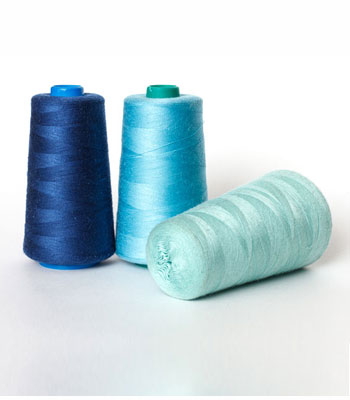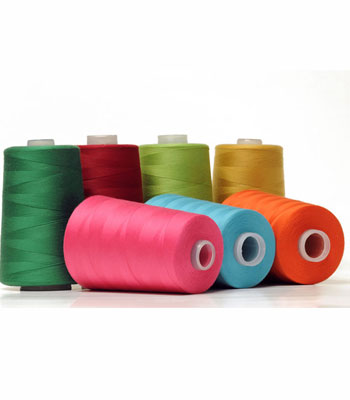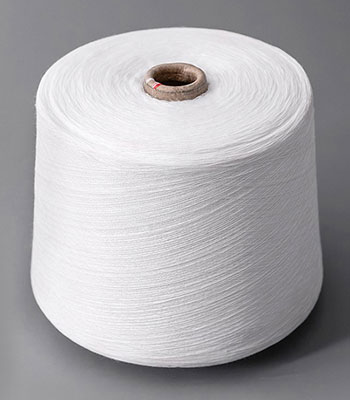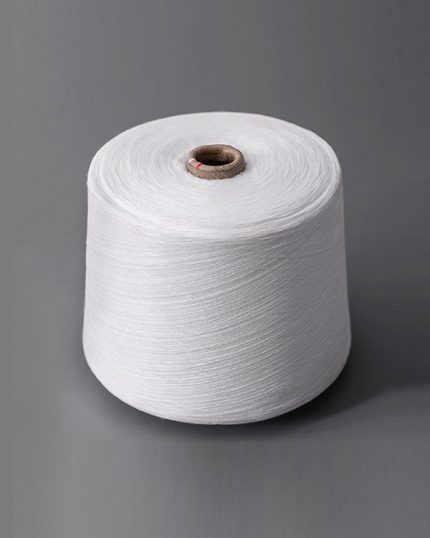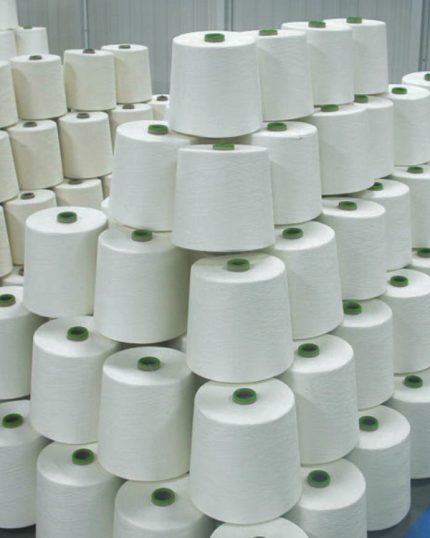Polyester Yarn
0,00 €The largest share of produced yarns including synthetic and natural is made up of the polyester fibers. Polyester fibers, like all other synthetic fibers, are manufactured industrially. In terms of characteristics, they are good alternative for natural fibers, such as cotton. To produce polyester, the combination of dimethyl terephthalate and polyethylene glycol or terephthalic acid (a substitute for dimethyl terephthalate) is used in the vicinity of proper catalysts.
Polyester Yarn
0,00 €The largest share of produced yarns including synthetic and natural is made up of the polyester fibers. Polyester fibers, like all other synthetic fibers, are manufactured industrially. In terms of characteristics, they are good alternative for natural fibers, such as cotton. To produce polyester, the combination of dimethyl terephthalate and polyethylene glycol or terephthalic acid (a substitute for dimethyl terephthalate) is used in the vicinity of proper catalysts.
Polyester Yarn
0,00 €The largest share of produced yarns including synthetic and natural is made up of the polyester fibers. Polyester fibers, like all other synthetic fibers, are manufactured industrially. In terms of characteristics, they are good alternative for natural fibers, such as cotton. To produce polyester, the combination of dimethyl terephthalate and polyethylene glycol or terephthalic acid (a substitute for dimethyl terephthalate) is used in the vicinity of proper catalysts.
Viscose Yarn
0,00 €Viscose is a man-made fiber- recycled fiber- and is the most important member of the Rayon’s fibers family. The raw material used for production of the viscose fibers are cotton linter and wood cellulose (mainly trunks of forest trees), which is a disadvantage of the viscose fibers since it damages the environment. The cross-section of viscose fiber is wavy and with lengths similar to cotton, linen, and wool fibers.
Viscose Yarn
0,00 €Viscose is a man-made fiber- recycled fiber- and is the most important member of the Rayon’s fibers family. The raw material used for production of the viscose fibers are cotton linter and wood cellulose (mainly trunks of forest trees), which is a disadvantage of the viscose fibers since it damages the environment. The cross-section of viscose fiber is wavy and with lengths similar to cotton, linen, and wool fibers.
Viscose Yarn
0,00 €Viscose is a man-made fiber- recycled fiber- and is the most important member of the Rayon’s fibers family. The raw material used for production of the viscose fibers are cotton linter and wood cellulose (mainly trunks of forest trees), which is a disadvantage of the viscose fibers since it damages the environment. The cross-section of viscose fiber is wavy and with lengths similar to cotton, linen, and wool fibers.
White Yarn
0,00 €A textile yarn is a continuous strand of staple or filament fibers arranged in a suitable form for weaving, knitting, or other form of fabric assembly. Also, a yarn is a textile product of substantial length and relatively small cross-section consisting of fibers with twist and/or filaments without twist. The yarn can be twisted with one or more yarns to increase value or aesthetics.
White Yarn
0,00 €A textile yarn is a continuous strand of staple or filament fibers arranged in a suitable form for weaving, knitting, or other form of fabric assembly. Also, a yarn is a textile product of substantial length and relatively small cross-section consisting of fibers with twist and/or filaments without twist. The yarn can be twisted with one or more yarns to increase value or aesthetics.
White Yarn
0,00 €A textile yarn is a continuous strand of staple or filament fibers arranged in a suitable form for weaving, knitting, or other form of fabric assembly. Also, a yarn is a textile product of substantial length and relatively small cross-section consisting of fibers with twist and/or filaments without twist. The yarn can be twisted with one or more yarns to increase value or aesthetics.
yarn
Min Order= – pcs
container= – ft.
The price is FOB Iran ports
The price is per pcs, Call for handling and shipping costs.



